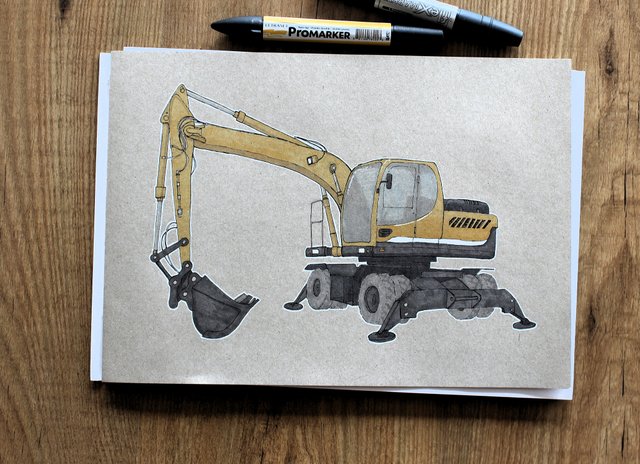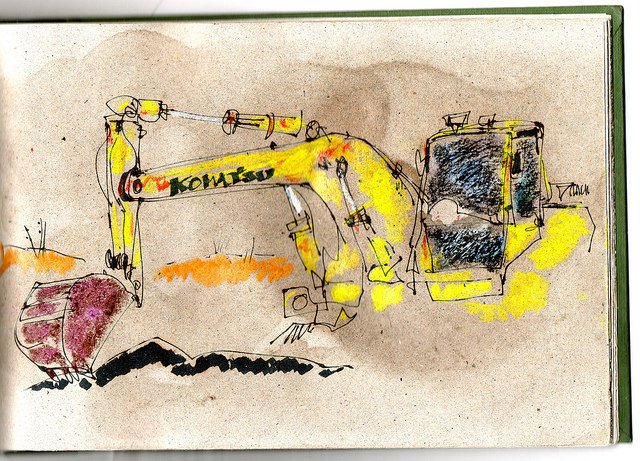
There are a lot of things to consider when buying an excavator, especially when it comes to the size and scope of the projects you will need it for. Which model of excavator will be best suited to your needs? Here we offer you 9 tips on buying a new excavator. Hopefully, we can point you in the right direction!
1. Operating weight/size
It’s obvious, but it’s still true. You want to ensure that the size of the excavator you are buying is apt for the task at hand. Excavators are usually grouped into different classes, which may vary depending on their country/region. Make sure that you choose an excavator which can handle the workload you’re about to give it! What kind of bucket capacity do you require? How much debris do you expect it to move at once? There’s no point in buying an excavator which is too big or too small for the job at hand.
2. Logistics
If you are to buy a new excavator, how will you transport it to your desired location? You may have found a bargain deal on the other side of the country, but how are you going to get it to your location? Most construction companies don’t have fleets of trucks which can drop everything (figuratively) and go on a return journey through the outback for a few days just to pick up a cheap excavator.
3. Tracks
The majority of compact excavators will come with rubber tracks, which are optimized for working on concrete surfaces such as streets and pavements, ensuring that the tracks don’t damage the ground. Although rubber tracks are great for preventing street damage, these tracks have a shorter lifespan than steel tracks, which tend to be much more durable. Mid-sized and large excavators tend to come with robust steel tracks as standard, although they may vary in width, depth, and overall size. If you require an excavator which has traction for heavy digging in soft ground conditions (i.e. you don’t want it to lose grip) then you should consider steel tracks which are wide and have deep grousers in place.
4. Hydraulics
It is important to understand the hydraulic flows of any attachments you plan on using with your excavator. Doing this allows you to optimize the performance of the attachments you use for the machine, ensuring that everything is compatible and works as planned. Understanding a machine’s hydraulic capabilities can allow you to narrow down your choices as your search for the perfect excavator which can handle all the attachments you need it to. A decent hydraulic system will help you to increase lifting strength, boost breakout force, improve overall responsiveness, and improve the overall speed/efficiency of the machine throughout its lifetime. A good hydraulics system can also give you more dexterous and sensitive controls, meaning that your excavator will be able to perform more delicate movements and operations when necessary.
5. Operator Comfort/Ergonomics
Being stuck in an excavator cab for half of the day can certainly take its toll on your body over time, causing a variety of muscle, back, and joint pain if you’re not careful. Not only does a comfortable cab ensure that your operator is happy, it allows them to increase their productivity as they aren’t distracted by pains or aches caused by a cramped or uncomfortable excavator cab. Although it can be tempting to exhibit a “put up with it” attitude when it comes to comfort, adjustable armrests, heated seats, lumbar systems, climate control settings and personal radios can make a difference in the long run, especially when it comes to morale! If your excavator is not going to be used for long stretches of time, however, you can probably afford to be less picky about all this.
6. Operator Controls
Is your operator trained to use a certain kind of system? Are they familiar with one make/model of excavator over another? Although your operators can always re-learn and apply their skills to a new controls system, you may find it more efficient to stick with controls that they’re used to. Some modern models even allow you to customize controls to an operator’s preferences, which could be incredibly useful if your operators come from different construction backgrounds!
7. Additional features
Additional features are just that – additional. Sometimes they won’t be crucial, but features such as auto-idle and selectable power modes could be what persuades you to buy one excavator over a more meat-and-potatoes model. Other additional features which are commonly included these days are LED lighting kits and cameras which can be used for rear views and side views, similar to a car. Telematics and machine control systems are also common on more high-end excavators these days, giving you more autonomy and omniscience with regards to your machines. These additional features could turn out to be very cost-effective for your business, even if they seem like add-ons at first.

8. Warranties/ Maintenance Contracts
It’s always a good idea to look into machine warranties and maintenance contracts when it comes to buying a new excavator. If you’re about to spend a considerable amount of money on a new machine, you want to rest assured that your investment is protected! Although the majority of manufacturers will often a standard warranty on their products, taking out a decent maintenance contract will help you to keep your excavators in great condition without paying an arm and a leg to do so.
If you are in the market for an Excavator contact Australia's leading provider of Excavator and Construction machinery, Equipment Hunt Compare quotes on all equipment and industrial products you need for your business.